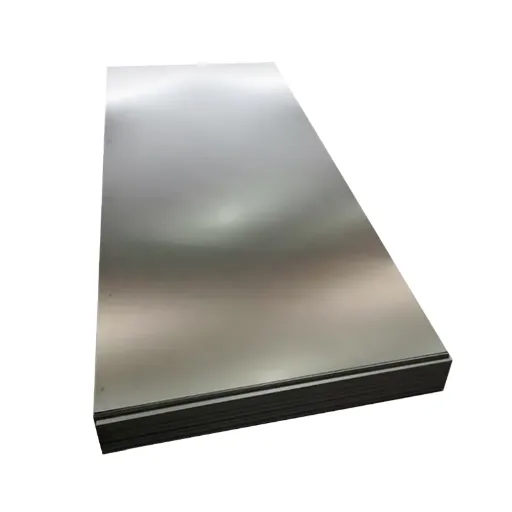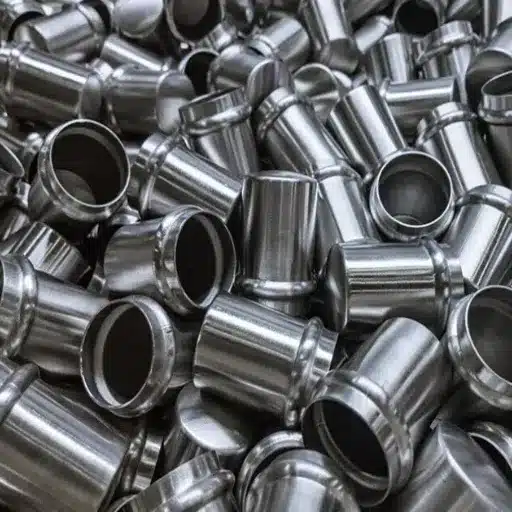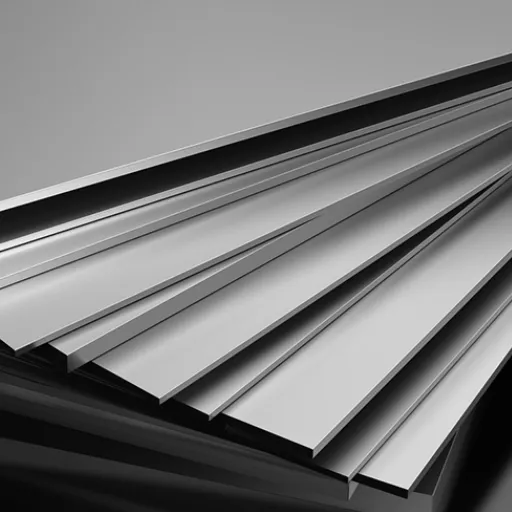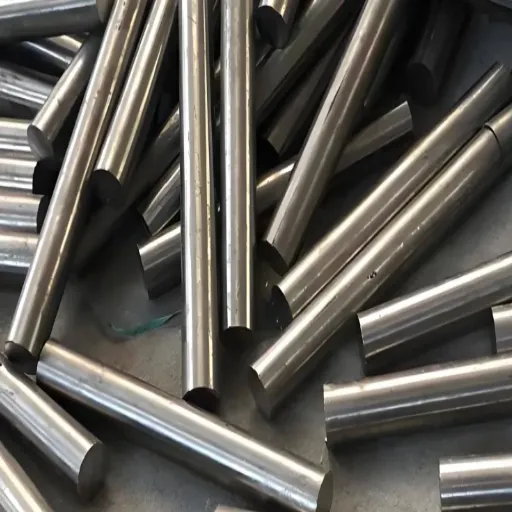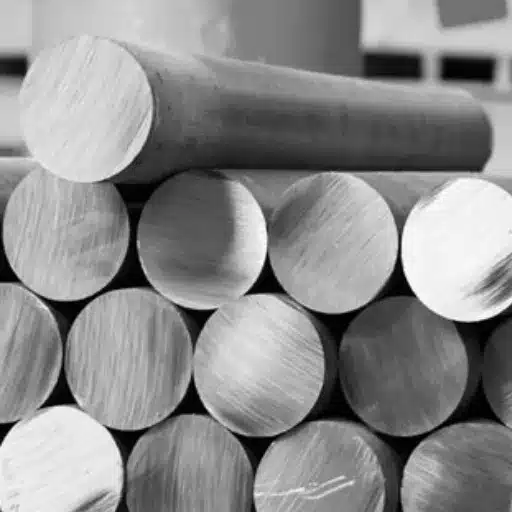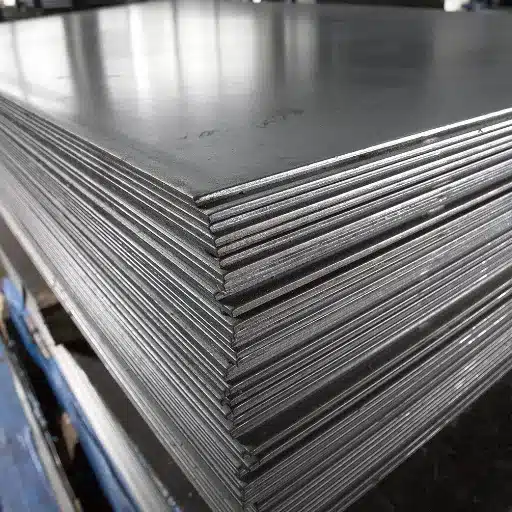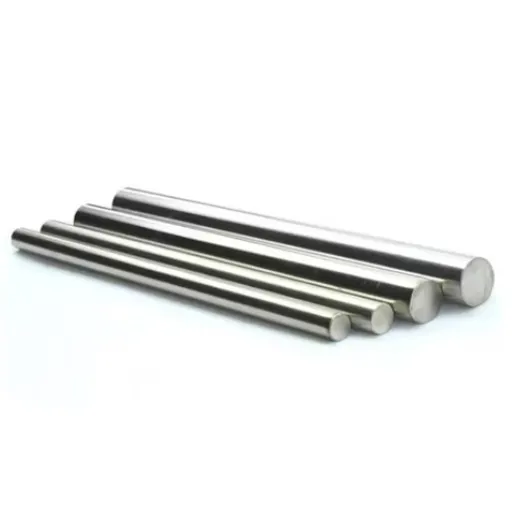Among the various high-performance materials, titanium is undoubtedly the most extraordinary one with characteristics that suit practically all industries like aerospace, medical, marine, and industrial manufacturing. The present post gives an in-depth exposition of titanium sheets and especially concentrates on the different grades like Grade 5 (6Al-4V), ELI, and Grade 2 that are the most recognized for their specific qualities and versatility. This article will be illuminating on the topic of titanium sheets being a primary selection for tough applications whether you are looking for its outstanding strength-to-weight ratio, corrosion resistance or biocompatibility. We will continue to reveal the attributes and benefits of this adaptable metal so that you can make well-grounded choices for your upcoming project.
Introduction to Titanium Sheets
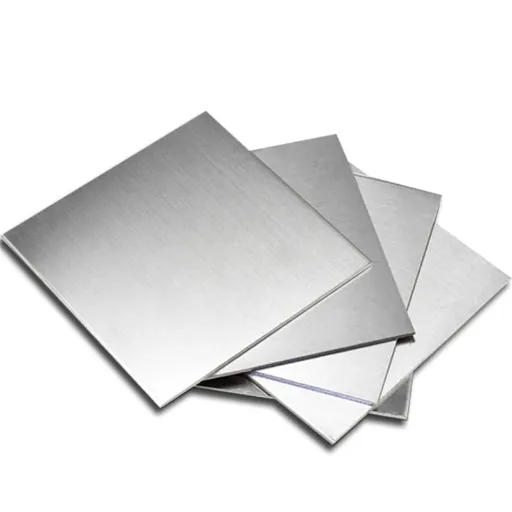
What is Titanium Sheet?
A titanium sheet is a sheet of titanium metal that is thin and flat, with the exceptional properties of strength, lightness, and resistance to corrosion. High performance in extreme conditions along with the abovenamed qualities make titanium sheets indispensable in the industries of aerospace, medical, automotive, and marine manufacturing. They are made in several grades such as pure titanium and Ti-6Al-4V (Grade 5) titanium alloy thus offering a range of applications.
The titanium sheets and their chemical compositions are the features of the metal with the most impressive strength-to-weight ratio. They are the material that is about 45% less heavy than steel and yet the strong too, depending on the grade. Further, they are also the materials that withstand the most extreme conditions in terms of temperatures and oxidation. Therefore, they have been highly selected for implants and medical devices due to their compatibility with living tissue.
An Introduction to Titanium Alloys
Titanium alloys are metals that consist of titanium and other elements that improve their properties related to mechanics, anti-corrosiveness, and thermal stability. The use of these alloys has become common and even necessary in various industries like aerospace, medicine, automobiles, and power. So, for instance, the addition of such elements like aluminum, vanadium, and iron in titanium alloys provides them with an excellent strength-to-weight ratio that is attractive in applications where the combination of performance and lightness goes hand in hand.
Recent industry analysis shows that the total worth of titanium alloy market worldwide was around USD 4.7 billion in 2021, and it is expected to increase by 4.5% annually throughout the period of 2023-2030. The aviation industry is the largest consumer of titanium alloys, especially for the production of aircraft frames, turbine blades, and engine parts. The reason is that these components resistant to heat and at the same time have strength against fatigue.
Properties and Benefits of Titanium Alloy Sheets
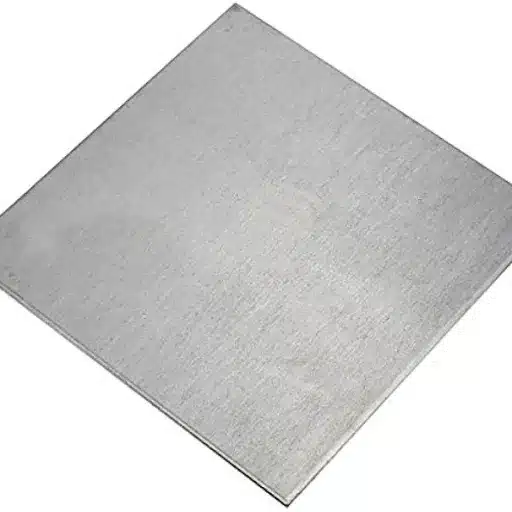
Mechanical Properties of Grade 5 Titanium
Grade 5 titanium, otherwise referred to as Ti-6Al-4V, tops the chart of titanium alloys that are most frequently used, thanks to its remarkable combination of strength, lightness, and resistance to corrosion. The alloy is made up of 90% titanium, 6% aluminum, and 4% vanadium, which grant it remarkable mechanical properties and thus making it extensive use across different industries.
The major mechanical characteristics of Grade 5 titanium are the following:
Tensile Strength: The tensile strength of Grade 5 titanium is around 950 MPa (138,000 psi) in the annealed condition, however, when it is heat-treated, this strength can exceed 1,100 MPa (160,000 psi).
Yield Strength: Its yield strength is about 880 MPa (128,000 psi), which is quite satisfactory for structural applications.
Elongation: This alloy can be stretched up to 10-15% before breaking, and this indicates that it has good ductility.
Hardness: The alloy has a hardness measured by Vickers method of about 349 HV, which gives it good resistance to wear and scratching.
Density: The alloy of Grade 5 titanium exhibits a density of 4.43 g/cm³, which is slightly less than that of stainless steel, and thus it is considered that it has a high strength-to-weight ratio.
Fatigue Resistance: It is highly rated in applications where material fatigue is the major concern, especially in high-stress and cyclic-load environments.
Corrosion Resistance in Titanium Plates
Of all the titanium plates, the most notable ones are the ones made from Grade 5 titanium because of their superb corrosion resistance properties. This resistance is principally caused by the development of a thick and stable oxide layer (TiO2) on the surface when titanium is subjected to oxygen. This oxide layer serves a dual purpose; it not only acts as a barrier but also lessens the possibility of the base metal interacting with aggressive environments containing corrosive elements, thereby ultimately conserving the metal underneath.
Unlike conventional materials such as stainless steel and aluminum alloys, the corrosion rates for titanium are way lower. For example, titanium reveals almost no pitting or crevice corrosion even after being submerged in seawater for more than 10 years. Based on the findings of recent research studies, the corrosion rate of titanium plates in chlorine-rich saltwater environments is only about 0.005 mm/year, which is, by far, much lower compared to that of stainless steel, which can corrode at rates of more than 0.1 mm/year under the same conditions.
Common Applications of Titanium Sheets in Various Industries
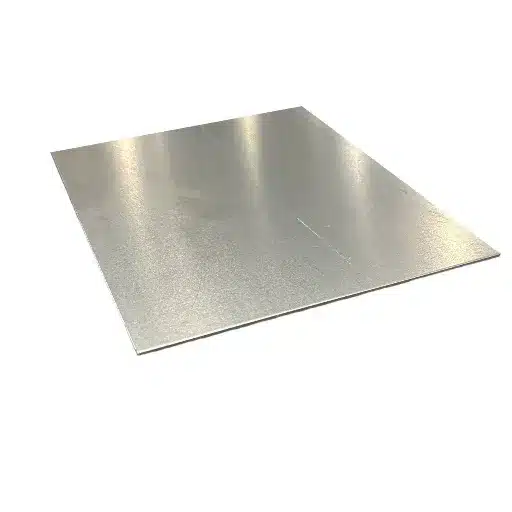
Aerospace Industry Applications
When it comes to the aerospace sector, titanium sheets are indispensable components because of their unmatched strength-to-weight ratio, resistance to high temperatures, and excellent corrosion resistance properties. Grade 5 titanium or Ti-6Al-4V, in particular, has become the most popular choice by the aircraft industry, which consumes almost half of the total titanium used in aerospace applications. The metal is, for instance, airframes, and engine parts, landing gear, and fasteners to achieve longevity with lightest possible weight.
The latest research indicates that titanium use in aerospace can result in an aircraft weighing 80% less which would in turn lead to a great deal of fuel savings and lower carbon emissions. As a case in point, the Boeing 787 Dreamliner with 15% metal by weight has taken full advantage of its resistance to fatigue and capability of enduring temperatures up to 1,000°F. Above that, NASA often applies titanium in space crafts considering it for very critical systems that are in constant contact with the extremely harsh conditions in space its heat resistance and low thermal expansion being the main reasons. The market size for titanium in the global aerospace industry was about $4 billion in 2022, and it is expected to grow at a CAGR of over 4.5% through the year 2030, which is a clear indication of the metal’s continuous rising significance in the field.
Titanium Alloy Sheets Medical Applications
Titanium alloy sheets are now the most important material in the medical industry because they are compatible with the human body, strong, and resistant to corrosion. These qualities make titanium an obvious choice for orthopedic implants, dental implants, and surgical instruments. As an example, titanium’s capacity to bond with bone tissue, a phenomenon referred to as osseointegration, guarantees its being the primary choice in hip or knee replacement surgeries and bone fracture treatments.
The global market for titanium in the medical sector is estimated to be around $2 billion in 2022, which reflects a compound annual growth rate (CAGR) of about 5.6% through 2030. The latter is the result of the population getting older, which will more people needing advanced medical devices. Due to their strength and body compatibility, titanium alloy sheets are extensively used in the production of spinal fixation devices, cranial plates, and pacemaker casings.
Recent Advancements in Titanium Sheets

Innovations in Alloy Composition
Latest improvements in alloy composition have elevated the performance and versatility of titanium sheets. The researchers have had their eyes on the addition of elements like aluminum, vanadium, nickel, and molybdenum, among others, to draw up new titanium alloys with better properties. As a case in point, the well-known Ti-6Al-4V alloy, which consists of 6% aluminum and 4% vanadium, is famous for its high strength-to-weight ratios, excellent corrosion resistance, and high biocompatibility making it the best option in both aerospace and medical applications.
Today’s innovations are all about the superplastic titanium alloys that are going to be developed. They would be able to withstand the highest temperatures and would thus be very good for the highly complex shaping and forming processes of the future. According to recent research these superplastic alloys are durable enough allowing for strains of more than 1000% without cutting off the process, thus they are being considered for large-scale manufacturing. Besides that, new biodegradable plastics are already being looked at to cut down the price but still have the same quality. For example, those β-titanium alloys with minimum vanadium content are getting more popular due to lesser production costs plus having the same mechanical strength as their counterparts.
Changes in Manufacturing Techniques
MManufacturing techniques are creating a new era for the titanium sheet industry as their recent improvements rademanufacturing techniques have advanced significantly. One of the main reasons for this is the introduction of additive manufacturing (AM) which is also known as 3D printing. This process is capable of producing complicated geometries with the least amount of material being wasted, which is especially beneficial for expensive materials like titanium. A study conducted in 2022 proves that additive manufacturing can cut down the material wastage by half while at the same time producing designs that even the most traditional machining methods could not achieve.
Cold spray technology is the next big thing in titanium manufacturing and one of the factors that contribute to its invention is the deposition of titanium coatings at lower temperatures rather than traditional spraying processes involving heat. This technique will not only save energy consumption but will also ensure that the material’s quality is not compromised, thus making it a more environmentally friendly choice. Reports issued by the industry indicate that the use of cold spray technology in coating of titanium has reduced in the energy consumption by 30-40% compared to other methods and the same high quality and performance have been achieved.
Practical Insights for Selecting Titanium Alloy Sheets

Factors to Consider When Choosing a Grade of Titanium Alloy Sheets
Strength and Durability
Titanium alloys of different grades possess different strengths. For example, titanium of grade 2 is rarely rejected for its very good combination of strength and resistance to corrosion which makes it usable in chemical processing industries. On the contrary, Grade 5 (Ti-6Al-4V), the titanium alloy that is the most widely used, gives outstanding strength and is usually applied in the fields of aerospace and medicine.
Corrosion Resistance
Places in the world where very intense conditions prevail, like in the case of marine and chemical industries, require materials that are not only resistant to corrosion but also very effective at doing so. In that case, Grade 7 titanium, which is alloyed with palladium, not only offers but also promises that resistance even in the case of the most acidic conditions.
Weight-to-Strength Ratio
Titanium is one of the few metals that can be seen as possessing a marvelously superior weight-to-strength ratio. In case the application fails to meet the requirement of reducing weight—like in the aerospace or automotive sectors—Grade 5 titanium alloy will most likely be selected because of the combination of lightness and strength.
Temperature Tolerance
In applications of high-temperature power generation, turbine engines, and so forth, titanium alloys like Grade 6 or Grade 23 are more suited because they have the property of keeping their mechanical properties intact even when subjected to thermal stress.
Best Practices for Using Titanium Sheets in Projects
Material Selection
It is very important to choose the right titanium grade for the project according to its requirements. For applications where high strength-to-weight, corrosion resistance, or heat resistance properties are required, consider using higher grades such as Grade 5 (Ti-6Al-4V). Nonetheless, for cost-sensitive or general-purpose use, Grade 2 is a reasonable and flexible answer. The latest industrial statistics reveal that Grade 2 titanium represents roughly 70% of non-aerospace applications owing to its property and price suitability.
Proper Cutting and Machining Techniques
Titanium sheets do not have to be handled with care during their fabrication. Because of their hardness and poor thermal conductivity, they are likely to cause tool wear during machining. The use of carbide-tipped tools, slow cutting speeds, and sufficient cooling fluids can all be used to avoid the heating up of the material and maintain the accuracy. Studies reveal the use of water-jet cutting has become a good technique for gaining clean and precise cuts without the distortion of the material.
Welding and Joining Methods
The exceptional properties of titanium require that special welding methods be followed to prevent contamination. Techniques like the TIG (Tungsten Inert Gas) welding that creates a controlled atmosphere for the weld which prevents oxidation are effective. For better joint strength, the surfaces must be thoroughly cleaned and made free of grease or oils before welding.
Reference Sources
-
Persistence Market Research
- Title: Titanium Alloy Market Size, Share and Trends Report, 2031
- Focus: Discusses the applications of titanium alloys in medical, aerospace, and industrial sectors, highlighting their growing demand and feasibility in these industries.
- Source Link
-
LinkedIn Article on Titanium Target Market
- Title: Titanium Target Market Developments Enhancing Product
- Focus: Explores the increasing demand for titanium alloys across aerospace, medical, and industrial applications, emphasizing their importance and market growth.
- Source Link
-
Titanium Manufacturers Website
- Title: Titanium Pricing and Industry Information
- Focus: Provides insights into the properties and applications of titanium alloys, particularly Grade 5 (Ti-6Al-4V), which is widely used in aerospace and other high-performance industries.
- Source Link
Frequently Asked Questions (FAQs)
What is a titanium alloy sheet?
A titanium alloy sheet is a metal plate that is flat and is a mixture of titanium with other elements that give new properties, such as improved strength, better resistance to corrosion, and less weight. The use of these sheets is very much extended across different industries, mainly in aerospace and manufacturing, since they possess the unique feature of being both light and strong.
What are the properties of titanium grade 5 sheet?
Titanium grade 5 sheet, or Ti-6Al-4V, is a very famous alloy type because it is very resistant to rust, it has one of the best strength-to-weight ratios, and it can also stand high temperatures. This alloy is very much used in the aerospace sector and it is known for its alpha-beta microstructure which gives it enhanced mechanical properties.
How does the ASTM-B265 standard relate to titanium sheets?
ASTM-B265 is a standard specification that proves the quality of a certain titanium and titanium alloy sheets and plates. This standard guarantees that the materials will have certain quality and performance characteristics, which makes the standard very important for the industries that are in need of metallic products that the suppliers can guarantee are both reliable and of high-performance.
What is the significance of AMS-T-9046 in titanium sheet manufacturing?
AMS-T-9046 is a standard that describes the characteristics of titanium sheets and plates that are to be used in aerospace applications. It lays down the manufacturing process and the attributes of the end product, which allows the companies to assure themselves and their customers that the titanium sheets are of the quality and performance standard required for the aerospace components that are most critical.

